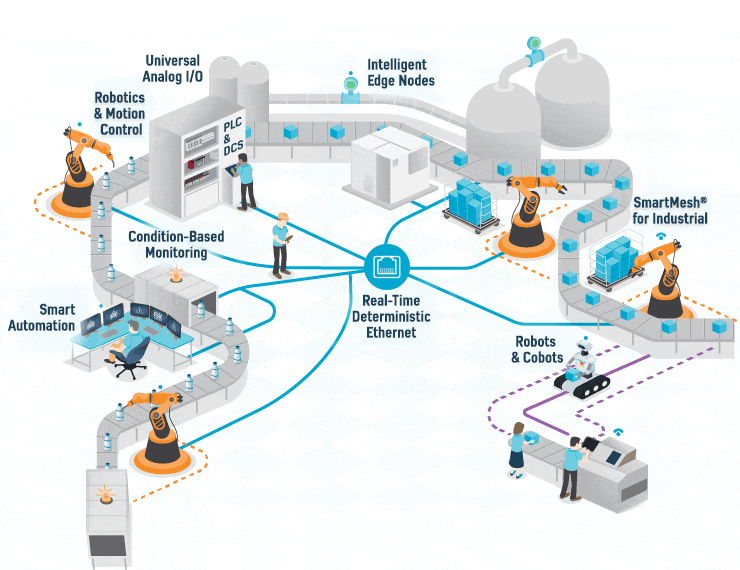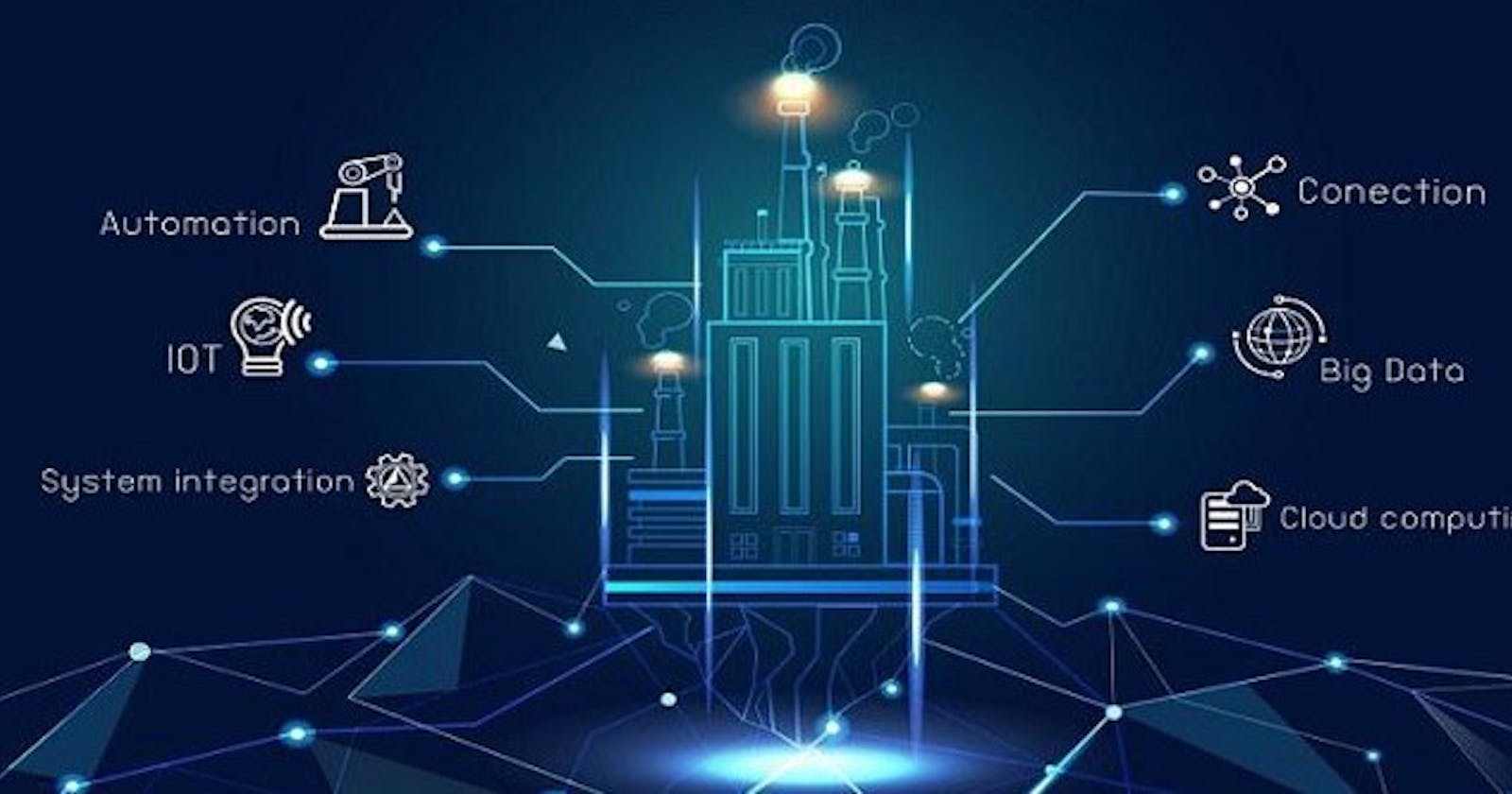The Fourth Industrial Revolution, also known as Industry Revolution 4.0, is the current phase of the industrial revolution it is the integration of advanced technologies such as Artificial Intelligence (AI), Internet of Things (IoT), and Machine Learning (ML) into the manufacturing process.
IoT is a key enabler of Industrial Revolution 4.0, as it provides the infrastructure for connecting devices, machines, and systems.

Because of the industrial revolution 4.0 human dependency was reduced, as shown in the above image we can easily understand it.
One of the main benefits of IoT in the context of Industry 4.0 is the ability to collect and analyze large amounts of data in real time. This data can be used to optimize manufacturing processes, reduce downtime, and improve overall efficiency. Let’s take an example, consider a temperature sensor that is installed in a cold storage room of a company, where it monitors the temperature and provides insights into potential issues before they cause a breakdown.
Another benefit of IoT in Industry 4.0 is the ability to create a "smart factory" environment where machines, products, and people are all connected. This can lead to increased flexibility and coordination in the manufacturing process, as machines can be re-configured and re-programmed in real time based on changing demands. Let’s take an example, a factory that produces multiple product lines can use IoT to quickly switch from one product to another, without the need for extensive re-configuration.
IoT can also facilitate the adoption of predictive maintenance, which is another key element of Industry 4.0. By analyzing data from sensors and other sources, machine learning algorithms can predict when maintenance is required or not, reducing the need for costly and time-consuming routine maintenance.
IoT and Industry 4.0 are closely connected, with IoT providing the foundation for many of the advanced technologies that are transforming the manufacturing process. By enabling real-time data collection and analysis, creating a smart factory environment, and facilitating predictive maintenance, IoT is help to improve efficiency, reduce costs, and increase flexibility as well as productivity.
